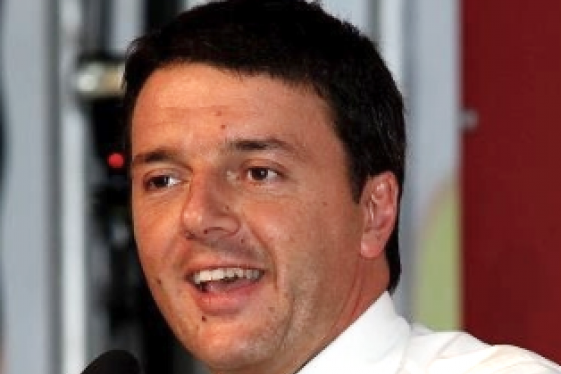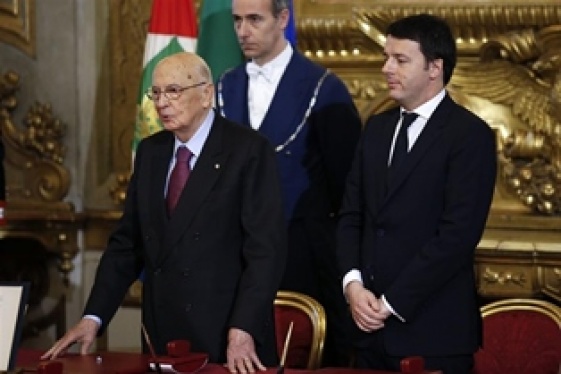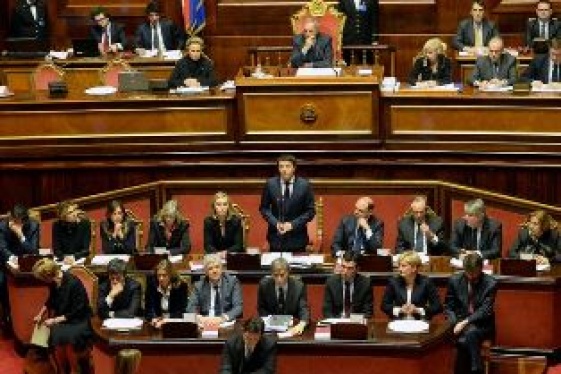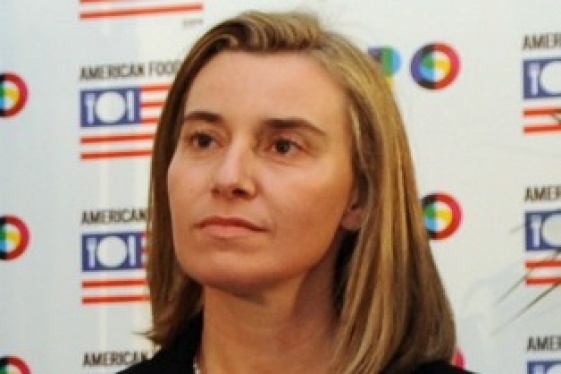

WTI Magazine #80 2016 June 17
Author : Lapo Orlandi Translation by:
Marco Pannella passed away last month, aged 86. He founded in 1955 the Italian Radical Party, that he transformed 34 years later into the first worldwide party, the Transnational Radical Party Nonviolent and Transparty, to promote, with the face of Gandhi as a symbol, human rights and the rule of law anywhere.
Through nonviolent actions and the use of Referendum he brought Italy into modernity: divorce, abortion, majority at 18, the closure of mental institutions, depenalization of marijuana, equality between men and women in the family law, alternative civil service to the military one are some of his achievements in Italy.
While at the UN level he obtained the establishment of the International Criminal Court, the moratorium on death penalty and on female genital mutilation. His last battles were for the respect of international standards in Italian jails, the UN adoption of the right to know for a transition to the rule of law, the UN acknowledgement of Esperanto as a common language of the human species, Israel and Turkey in the EU. But Pannella, a francophone who slightly understood English, has also been a sincere and loyal friend of the USA.
It was not easy for an Italian politician in the 70s and 80s to be openly pro-American. At that time the young supporters of the Italian communist party, which collected slightly less than the 40% of votes, and of other far left organizations demonstrated against Vietnam war or the cruise missiles insulting the "Amerikani", the Amerikans, written with a k in sign of scorn. While Pannella with his radical antimilitary fellows went to protest against the proliferation of nuclear weapons in the eastern European soviet republics, getting arrested and expelled every time.
The origin of Pannella friendship with the USA, that brought him to claim to be an "Amerikan with the k", was in his strong conviction that the USA political, institutional, electoral, judiciary, economic, unions, media and even religious systems were a model to be imported in Italy and in Europe because they were inspired to individual freedom and the open society. This was the reason for which, according to him, in 200 years the USA (and the UK) never knew dictatorships. This was also the reason for which he thought that even when mistakes and human rights violation happened (Pannella never said the USA were perfect) the antibodies to such anomalies came from inside the American system itself.
Pannella campaigned for many years in Italy and in Europe for the American presidentialism, the american electoral law, the American judiciary system (separation between public prosecutor and judge and their direct election), the American party systems (2 major parties, without ideologies, directly and freely financed by the citizens), the American free market economy. "All'inglese, all'americana" was one of his mantras that he used to repeat unceasingly and for which he was often derided. But he brought a lot of "American" innovation in the Italian politics, including in the communication style (he was the first to appear as sandwich man in a rigid black and white Italian TV).
Pannella was convinced that only the adoption of the American institutional and political system at the European level, with a president directly elected, a real parliament controlling him, the national governments transferring sovereignty to a federal government and the adoption of Esperanto as a federal language would have implemented the idea of United States of Europe promoted during WWII by the Italian antifascists Ernesto Rossi, Altiero Spinelli and Eugenio Colorni. The first two of which having been his friends and comrades.
But Pannella's friendship with the USA was not dependent on the color of the American administration in rule neither it was acritical. Pannella admired both democrat and republican presidents: Roosevelt for having ended prohibitionism on alcohol and Eisenhower for having warned "against the acquisition of unwarranted influence by the military-industrial complex". He admired Reagan economics (probably the only Italian politician) but strongly contested, being a convinced supporter of legalization, his war on drugs. He supported, totally isolated, the Clinton will to bomb the Serbian army over Sarajevo's hills and George W. Bush attempt to build a Community of Democracies.
He welcomed Obama's election for his claimed will to close Guantanamo jail, but criticized him for using drones to kill enemies in Afghanistan.
Pannella was a fierce supporter of the abolition of death penalty and of drugs legalization. For this, he openly criticized the USA but at the same time looking for dialogue with American representatives in local and federal congresses and governments in favor of his ideas because he considered that sooner or later the US would have changed their policies in both topics. With regards to death penalty, still considering it a vulnus for American democracy, he said that the real scandals were in China, Iran and Saudi Arabia, since in the US it was committed for serious offences and after a fair trial.
Nevertheless, like any true friend, when Pannella considered the USA were betraying themselves, and their essence of being a democracy respectful of the rule of law, he shouted it out loud.
It is the case of the second gulf war. While the US army was mobilizing troops at the Iraki borders, Pannella with one of his hunger strike convinced over half of the Italian MPs to address a parliamentary (non binding) resolution to Berlusconi, at the time Italian Prime Minister and President of the European Union, to promote a diplomatic action to obtain the exile for Saddam in change of a pacific transition towards democracy under the UN supervision.
The story went on another direction, and Pannella considered that, also following the Aznar memories and the documents of the Chilcot commission, a betrayal of the American soul. For many Americans and pro-Americans this was an evidence of the deterioration of Pannella's pro-Americanism. But the radical leader probably considered it a sign of his being more American than many Americans. An Amerikan with the k, of course.
You may be interested
-
Italian politics: 2013, a year made of firsts
WTI Magazine #11 2014 Jan, 3Author : Francesca Papasergi Translation by: Po...
-
Italian politics: A dirty job act
WTI Magazine #44 2014 October, 1Author : Francesca Papasergi Translation by: ...
-
Italian politics: A huge taxation with a stra...
WTI Magazine #12 2014 Jan, 10Author : Francesca Papasergi &nbs...
-
Italian politics: A more bitter than sweet 20...
WTI Magazine #50 2014 December, 26Author : Francesca Papasergi Translation by:...
-
Italian politics: A new hope
WTI Magazine #19 2014 Feb, 28Author : Umberto Mucci e Francesca Papasergi Trans...
-
Italian politics: Alitalia, gone with the fli...
WTI Magazine #33 2014 June, 4Author : Francesca Papasergi Translation by: T...
-
Italian politics: An Italian in charge for th...
WTI Magazine #43 2014 September, 17Author : Francesca Papasergi Translation by:...
-
Italian politics: Bailing out the Great Beaut...
WTI Magazine #20 2014 Mar, 7Author : Francesca Papasergi Translation by: Pa...










